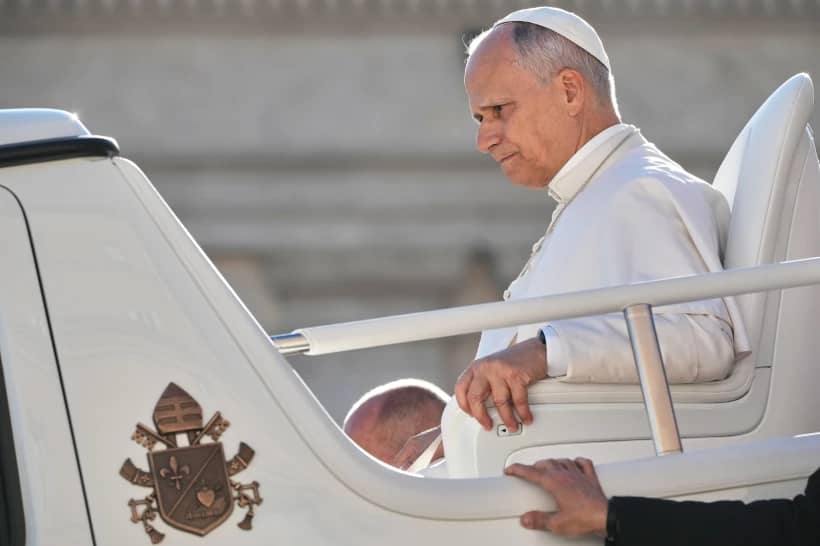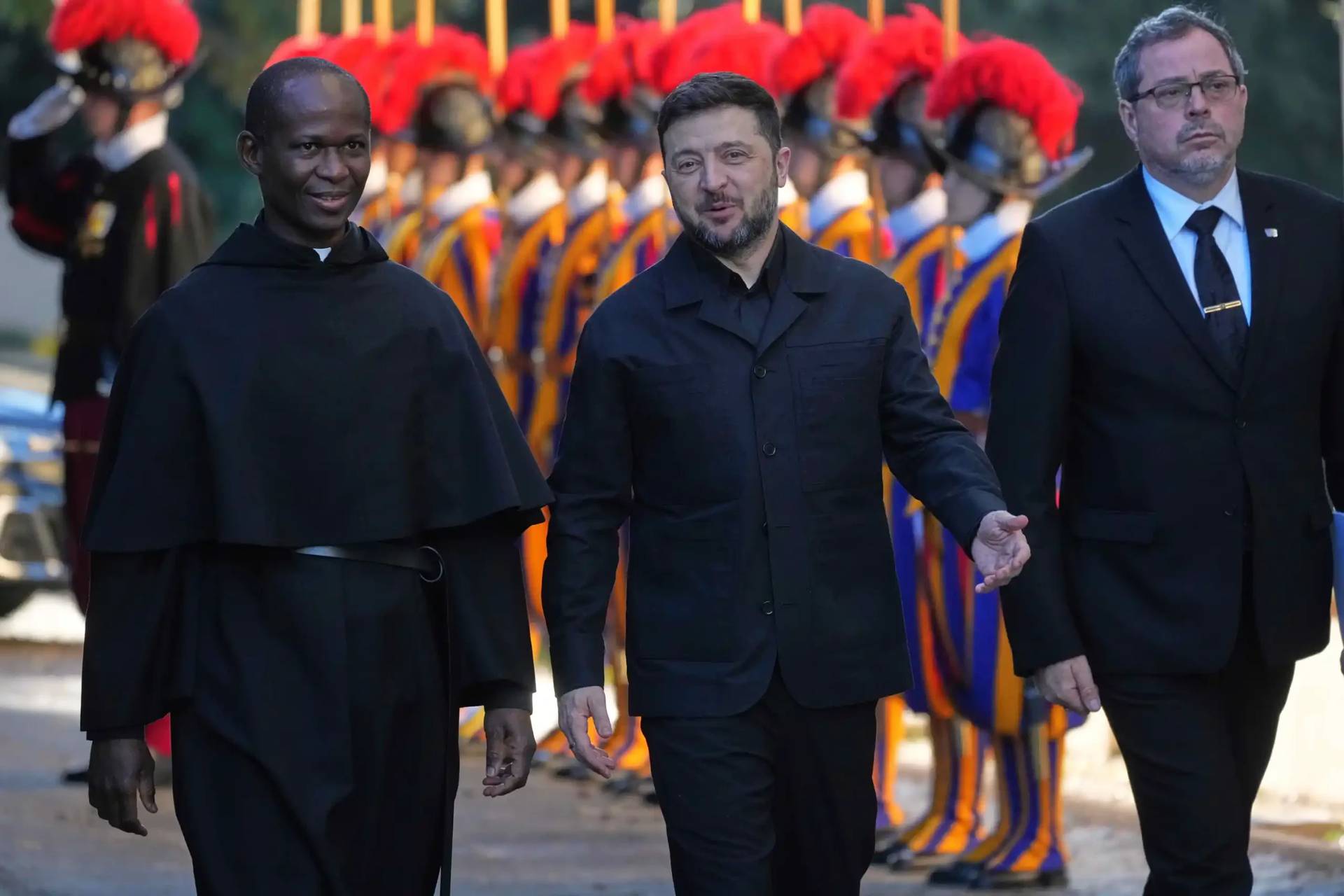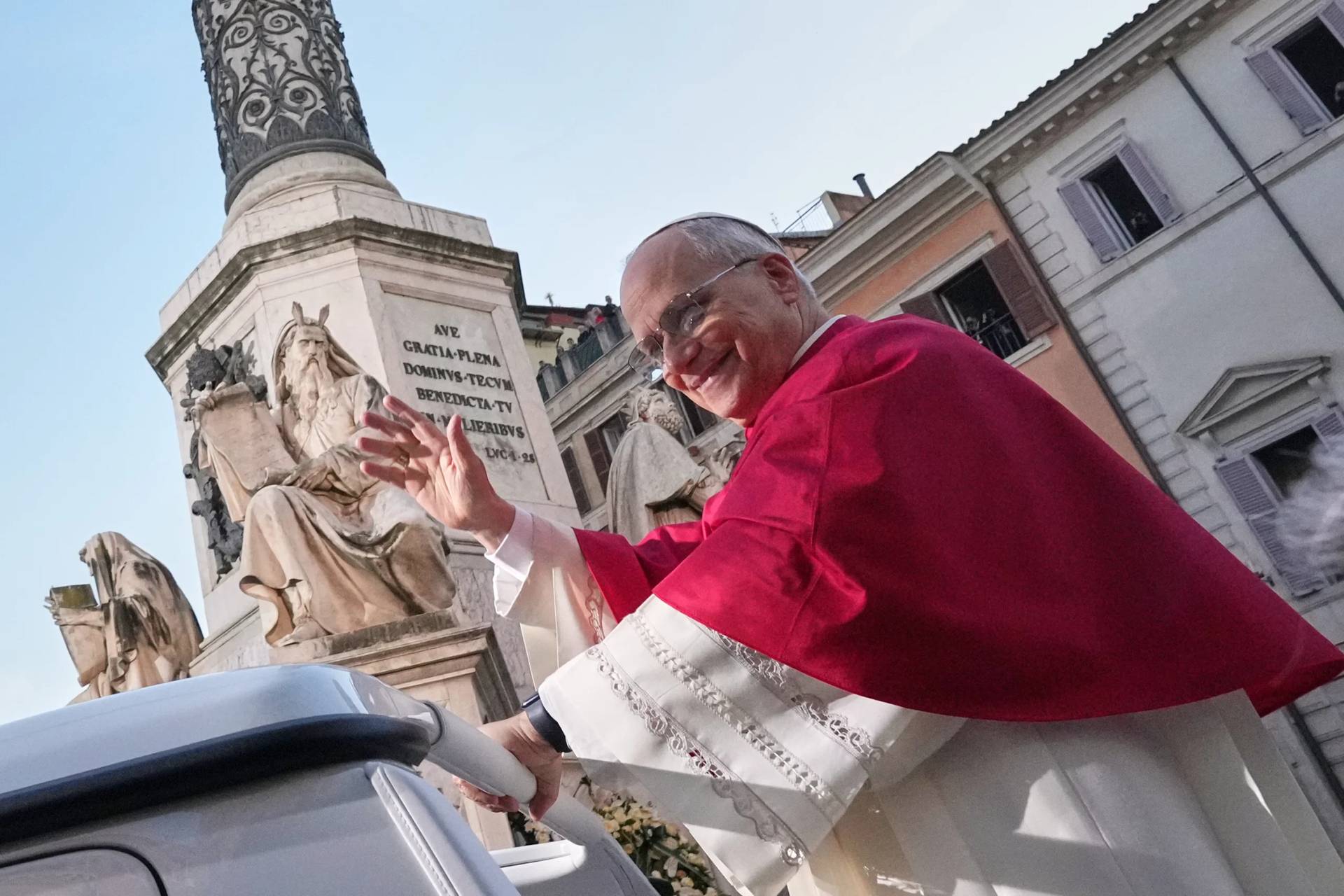ROME – This year’s prestigious Ratzinger prize was awarded to three leaders in their respective fields, hailing from different religious beliefs and backgrounds.
“Following the ecumenical opening of the prize’s horizon, we have (awarded) a Catholic, Professor Karl-Heinz Menke, a Lutheran on the year of the anniversary of the Reformation, Professor Theodor Dieter, an Orthodox, the composer Arvo Pärt,” said Jesuit Father Federico Lombardi, former papal spokesman, at the press conference Sep. 26.
The Ratzinger prize, established in 2010 by Pope Benedict XVI to serve as the premier international prize in theology, is given to those performing scholarly research in Sacred Scripture, patristics, and fundamental theology. But this year’s prize, likened by some to the Nobel of Theology, was awarded also to Pärt, who is not a theologian but whose work draws from a profound religious sentiment.
“Benedict XVI’s appreciation for the art of music and the highly religious inspiration behind the musical art of Pärt, justified the attribution of the prize also outside of the strictly theological field,” Lombardi said.
Pärt, who was born in Estonia, has dedicated his work mostly to religious music and gained international fame. Michael Stipe, lead singer of the rock band R.E.M., described Pärt’s music as “a house on fire and an infinite calm,” while Icelandic singer and songwriter Björk praised his ability to give “space to the listeners.”
The composer was also nominated by Pope Benedict XVI to become a member of the Pontifical Council for Culture in 2011, and played the “Our Father” before the emeritus pope for the 60th anniversary of his ordination.
Pope Francis selects the winners of the Ratzinger Prize, now on its seventh edition, who are nominated by a five member scientific committee.
The Lutheran Dieter was awarded in light of his commitment to the promotion of ecumenical dialogue, a theme that Francis has zealously pushed forward in his pontificate.
The German theologian was a leading voice in the writing and approval of the Joint Declaration on the Doctrine of Justification of 1999, agreed on by the Pontifical Council for Promoting Christian Unity and the Lutheran World Federation.
Also from Germany is the theologian and Catholic priest Menke, who teaches at the theology faculty of Bonn University and has written several studies and essays on Benedict XVI. Pope Francis named him a member of the International Theology Commission in 2014.
The award will be handed out on November 18, possibly by the pope, on the day after a congress at the Gregorian University in Rome dedicated to the medieval theologian Saint Bonaventure.
Lombardi also announced two innovations within the Vatican’s Joseph Ratzinger Foundation. The first is the creation of a new prize, in collaboration with the Universidad Francisco de Vitoria in Madrid, Spain, which will be handed out September 27 at the Academy of Science. The award is called ‘Open Reason,’ echoing one of the central themes of Benedict’s thought.
Benedict “insists on the necessity of having a wide and open vision of reason and of its role in the search for truth and the answers to the fundamental questions on humanity and its destiny,” Lombardi said, adding that this view could have many applications in today’s modern culture and universities.
More than 300 submissions were sent to the commission, from more than 30 different countries, showing a global interest in the initiative. Due to its success, the Foundation has also begun working on a project allowing researchers and professors spread all over the world to create a network.
Darcia Narvaez, of the University of Notre Dame, and Claudia Vanney and Juan Franck, from the Austral University of Buenos Aires, won the prize in the “Research” section. Michael Schuck, Nancy Tuchman, and Michael Garanzini – from Loyola University – as well as Dominican Sister Sarolta Laura Baritz, won in the “Teaching” section.
This year’s second innovation is the VII International Study Congress, which will be organized in partnership with the Catholic University of Costa Rica on the theme of the environment and the Encyclical Laudato Si, “keeping in mind the continuity of the magisterium of Pope Francis with that of Benedict XVI also in this specific field,” Lombardi said.
The issues concerning the environment are crucially important, especially in Latin America, to the extent that Costa Rica has declared the event to be of national relevance. The event hopes to develop a network of churches in Latin America to find practical solutions and programs to cater to the environment, and to build an observatory to monitor developments.
“The Congress counts on giving an original contribution to answer to the call toward theoretical and practical mobilization issued by Pope Francis with the publication of his encyclical,” Lombardi said.














